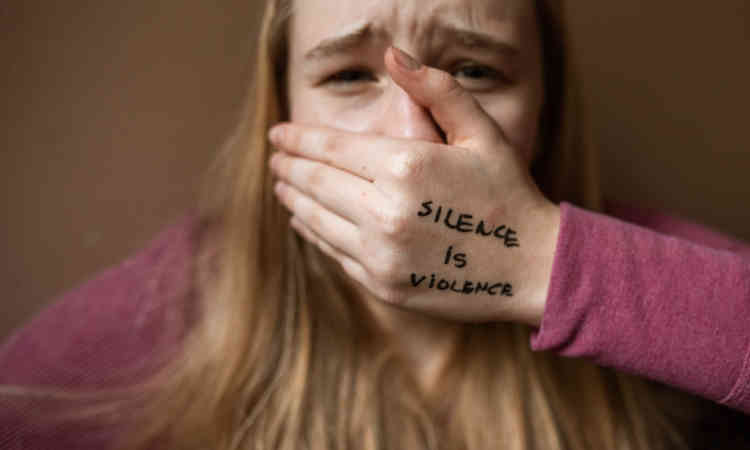Stories have started to emerge in the last few years about abuse suffered in churches. And how this abuse has led to significant psychological trauma for the victims.
It is good for us all to listen to these stories ….. and to understand ….. and to act in response.
Listen to the stories
The following accounts come from the sources listed. In many cases names have been changed or online pseudonyms used.
Sexual harassment
“I walked away from the ministry for years because I had been sexually harassed and groped by church leaders. The people that I told of my experience either had no power to do anything about it or had power but just did not care.” (Monica)
A woman was admitted to a psychiatric unit to deal with complex PTSD after surviving months of intimidation culminating in a sexual act of indecency at the hands of her pastor. Her psychiatrist told her he frequently treats survivors of church abuse. She met six other inpatients who were hospitalised primarily for PTSD due to abuse in a church or Christian organization. The common thread in their stories was that while the abuse itself was bad enough, their churches’ uncaring responses to their allegations were what cemented the PTSD. (Reported by Mike Frost)
Inappropriate attitude to sex
Ana was in a relationship with a man who pressed her into various sexual activities that avoided actual intercourse. She felt guilty, but he insisted it wasn’t condemned in the Bible. She became traumatised by this abusive relationship, and was confused about her identity. She went through a process of questioning her christian beliefs. After she later married (a different guy) Ana found she had problems relating to her husband sexually, because of these events and her upbringing within “purity culture”. (from TNR)
“The church/purity culture is the reason why I didn’t know a guy at my Christian college had harassed and assaulted me until years after it happened. None of my college friends know because I’m afraid of retaliation and judgement.” (‘Ms Charlotte‘)
Domestic abuse
“Several women in church shared that they were being abused by their husbands, including my mom, the pastor gave them each a green prayer cloth to put in their husband’s pillows…that was his way of solving issues of domestic violence.” (‘you’re on mute’)
“I was in a hotel with my babies fleeing a violent outburst from my husband; my pastor told me to go home and submit.” (‘Mostly Okish’)
“I used to attend a fundy church where I knew of women counselled to stay in abusive marriages. Before I left mine, men from the church tried to convince me to stay, thankfully I didn’t listen.” (Asha)
Surveys show that churches with more patriarchal attitudes and “male headship” teaching are more likely to include men who are abusive at home.
Fear and control
Marcus attended a church that prohibited watching TV, going to the movies and wearing jewelry. The leader demanded absolute obedience and bullied Marcus from the pulpit. “I became sick because of stress, depressed and paranoid,” he said.
“Yeah my fear of hell and the devil directly influenced a lot of the mental health problems I battle today. It might not be the same for everyone, but I truly would have rather grown up in an atheist family.” (‘@Nick0j0m’)
“As a kid, Church wanted me to evangelize and did that whole ‘if you don’t do it, they’re going to Hell’ thing. It was worse with my social anxiety — I felt like every time that I didn’t witness, it was directly my fault that they would go to Hell. So there was extra anxiety.” (‘@JennHolton’)
“I would come home from school, the house would be empty, and I would have a panic attack. I thought that my parents had been raptured and I had been left because I was not a good enough Christian.” (Erin still struggles with fear of abandonment)
Kevin learned to be frightened of hell and of the Rapture, when true believers would be swept up into heaven during this great end-times event. Everyone else would be left behind to suffer the seven-year reign of terror, known as the tribulation, when the Antichrist would behead anyone who didn’t receive the mark of the beast. One stressful night as a young teenager his parents were out late and he convinced himself the Rapture had occurred and he’d been left behind. “I got out the church directory and looked up the number of the family in our church who I thought was the most religious. When someone answered, I hung up. I was so relieved it hadn’t happened. ….. I feel like life was robbed from me, that my childhood was taken away.” (Broadview)
Faith reconstruction and family
Felicity grew up in a Christian fellowship. But when she told them she was curious to explore other religions, she was shunned. On a visit home, her baby things and every gift she’d given her mother were packed up for her to take away, essentially erasing her existence. “I love you, but I can’t have anything to do with you,” her mother told her. (Broadview)
Emily’s family believes voting Republican is essential to salvation. The “Antichrist guessing game” is popular in her family. “Is it Obama? Is it Hillary? Whoever it is, you can be sure it’s a Democrat.” But after she watched the documentary An Inconvenient Truth she started to question everything she’d been taught. “I didn’t know anything about climate change. . . . I was raised with visions of the apocalypse.” When she left her religion, her family was angry. “It was like a bomb went off. If you deviate, it’s social destruction.” (Broadview)
Psychologist Marlene Winell grew up wanting to be to be an ideal Christian. But she began to question her beliefs in university where she met non-Christians who seemed like perfectly good people. “Leaving the fold was then a long and wrenching process which tore at the fabric of my existence,” she explains. “‘Losing’ God was like losing parents. Family and friends were never the same afterwards, and I no longer had a readily available community.” (Broadview)
Listening without judgment
I am not suggesting that each person here reacted in the “right” way to their circumstances, nor that their families and churches always behaved badly. Life is more complex than that.
But I do believe we need to hear the stories and the hurts, believe them, and resolve to do what we can to love and care for hurting or badly-treated people.
In particular, our churches must not place the supposed good name of the church or its staff above caring for people and honouring Jesus, who many times cared for the vulnerable before the religious authorities.
I have written up more on the damage done by religious trauma, and how churches and individuals might prevent (as much as possible) these hurts in the future – see When christianity leads to trauma. I encourage you to read it and (hopefully) be better informed about this deep problem.
Photo by RODNAE Productions from Pexels





Power relationships are always going to nurture abuse.
Christian churches are being exposed and its about time, but I think the same thing exists in other religions but won’t be exposed because their members are under threat of death if they speak out.
I really feel for women especially in all religions who have nowhere to go and spend their lives under the thumb of patriarchs.
Thanks. yes, I agree. And not just other religions. Schools, offices, sporting clubs, etc, all have their share of problems, though hopefully they are addressing the issues better than the church has.